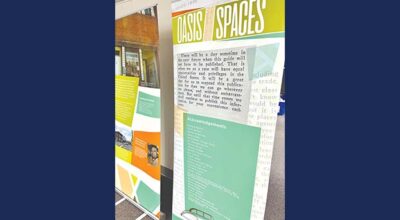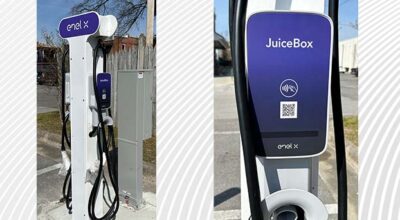Golf carts, wastewater discussed at Bath Council meeting
Published 8:46 pm Tuesday, April 16, 2013
First on the agenda at Bath’s Town Council meeting Monday was a moment of silence for the victims of the Boston marathon bombings earlier that day.
Mayor Jimmy Latham invited 1st Sgt. Brandon Craft, head of Troop A, District IV, of the North Carolina State Highway Patrol to talk about the growing number of golf carts driven on town roads.
The town enacted an ordinance in March of 2011 that addresses who can drive the golf carts (licensed drivers), where they can be driven (on any road where the posted speed limit is 35 mph or less) and how they can be driven (golf carts must be registered with the town and bear a town sticker), but the enforcement of the ordinance has proven to be challenging.
“We want to try to address this before the warm weather,” said Town Administrator Bubs Carson.
Craft said that, so far, his troops have had no problem with the golf carts on Bath roads but enforcing the town ordinance would be difficult for the Highway Patrol. Craft said his resources are stretched — only nine troopers patrol all of Beaufort County — but that troopers would respond to reports of underage drivers and drunk drivers.
Zach Fuller, of the Raleigh-based engineering firm MacConnell & Associates, delivered updates to the Town Council on the progress of the wastewater treatment plant currently under construction. As of mid-March, the new plant was 16 percent completed, but now that most of the pre-cast concrete building materials are on site, the project is moving quickly.
Bath has been under a state-issued moratorium since 2007 because of the existing plant’s inability to process an expanded sewage capacity, preventing some homes from being built and the town from growing. The new plant will nearly double the town’s sewage capacity.
Under discussion at Monday night’s meeting was a change order to move the plant’s backup generator outside and build the necessary structure to protect the equipment. Originally designed as part of the plant’s interior, the size of the generator — a 100-kilowatt generator with a 430-gallon diesel fuel tank — needed more space than had been designed, said Fuller.
According to Carson, the lessons of Hurricane Irene taught them the necessity of having a backup generator that could handle the city’s flow.
“During Irene, we were scrambling to get generators over here,” Carson explained. “This generator would operate our system continuously for 48 hours.”
Commissioner Jay Hardin requested that more research be done as to whether the generator enclosure would be less expensive if the sound-attenuating properties in the specs were not included.
“It’s well worth the money to protect what we have out there,” responded Commissioner Keith Tankard. “Let’s not nickel and dime it unless we’re talking thousands of dollars.”
In other cost-cutting measures, the council agreed to hold off repaving Main Street between Craven and King streets, as the town is focused on the completion of the wastewater treatment plant, which is expected in November.
Before November comes, the council must decide in what order residents and businesses will be hooked up to the new system and how much time is considered ample notice for customers, including those who have been waiting to build their homes. Since the moratorium has been in effect, home construction has required the installation of a septic tank system.
“If (property owners) do want to build their homes in the next six months, it would be nice to let them know,” said Commissioner Trish Duffer.
Because of the moratorium, Town Attorney Charles “Chip” Edwards Jr. explained that the Quarterdeck Marina was denied an application for a change in use from a food stand/convenience store to a full service restaurant with seating for 36 people. According to Edwards, Carson and Edwards consulted with David Mays of the North Carolina Division of Water Quality who said that a full service restaurant would require an additional 40 gallons per restaurant seat, per day, of flow. A potential additional flow of 720 to 1,440 gallons per day would violate the state moratorium.
Duffer pointed out that, though the application was denied, once the new treatment plant is up and running Quarterdeck Inc. could reapply.
The next Bath Town council meeting is set for May 13 at 7:30 p.m.





